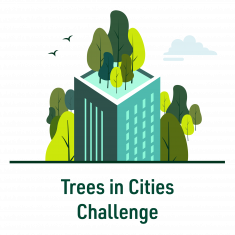
By 2050, over two-thirds of humanity will live in cities, which are already responsible for around 75% of global CO2 emissions. Cities are therefore at the forefront of fighting climate change. Sustainably managed urban trees and forests are an integrative and cost-effective nature-based solution that provide vital benefits for biodiversity conservation, climate adaptation and mitigation, disaster risk reduction, health and wellbeing, and sustainable development. This contributes not only to sustainable local development, but also to national objectives and to most SDGs.
While tree planting has received increasing attention in recent years for its multiple benefits, it is critical to ensure that urban trees and forests survive and thrive. Achieving this, and thereby unlocking these benefits, depends on sustainable long-term planning, budgeting and management of urban forests as part of an integrated socio-ecological system with the right tree in the right place for the right reason. A sound understanding of existing and potential tree and forest cover is needed to inform the elaboration of these plans and support the sustainable management of existing and newly tree cover.
While advancing sustainable urban forestry, cities and experts report that a lack of urban forestry benchmarks makes it difficult to set SMART (Specific, Measurable, Achievable, Realistic, Timely) targets during urban forestry planning and to assess whether plans are realistic, ambitious and well-targeted. It also hampers efforts to comparably define and measure urban tree and forest cover across cities, which is necessary to support national urban forest policy and support to local authorities. Thus, comparable, relevant and clearly defined benchmarks can inform policy and long-term planning, and back and sustain efficient and effective urban forest management, from the city to the national level. This supports the implementation of urban forestry as a nature-based solution for local and national goals.
Responding to this need, through the Informal Network of Experts on Sustainable Urban Forestry, UNECE has developed an urban forest benchmarking survey. This event will explore the importance of - and challenges in - benchmarking urban forestry and provide an opportunity to share input on the benchmarking objectives and data collection needs and challenges prior to the launch of the benchmarking survey.

